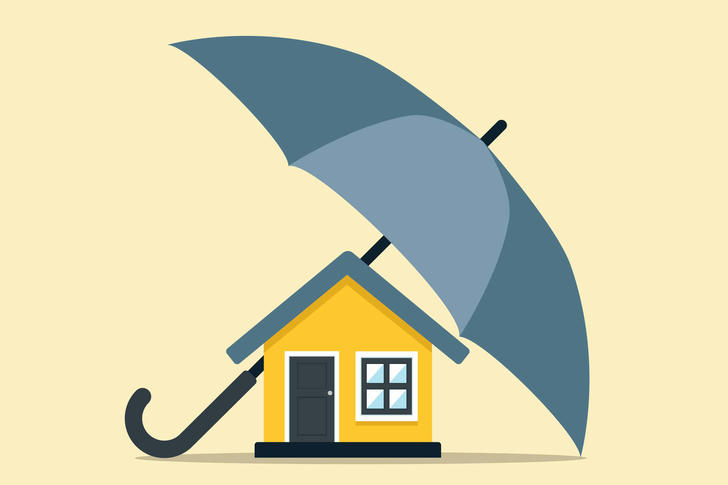Homeowners Insurance: Your Shield Against Life’s Unexpected Disasters
Your home is your castle, but without homeowners insurance, it’s a castle made of sand—one storm away from crumbling. This essential policy is your ultimate defense against life’s unpredictable disasters, from raging fires to rogue trees, ensuring you’re never left picking up the pieces (or the bills) alone. Whether it’s a tree crashing through your roof, a burst pipe flooding your basement, or a thief making off with your prized possessions, homeowners insurance is your safety net, your peace of mind, and your financial lifesaver. Let’s explore why this policy is a must-have and how it can save the day when disaster strikes.

What Exactly Is Homeowners Insurance?
At its core, homeowners insurance is a financial safety net designed to protect your home, your belongings, and your wallet. It’s not just about fixing a broken window or replacing a stolen TV—it’s about giving you peace of mind. Think of it as a superhero cape for your house, ready to swoop in when disaster strikes. But unlike a superhero, it’s not free. You pay a premium (usually monthly or annually) to keep this protection in place. In return, your insurance company promises to cover the costs of repairing or replacing your home and belongings if they’re damaged or destroyed by covered events.
Why You Can’t Afford to Skip It
Let’s be real: life is unpredictable. One minute, you’re enjoying a quiet evening at home, and the next, a freak storm is ripping shingles off your roof. Without homeowners insurance, you’d be stuck footing the bill for repairs—and trust me, those costs can add up fast. Imagine having to shell out $10,000 for a new roof or $50,000 to rebuild after a fire. For most people, that’s a financial nightmare waiting to happen.
But it’s not just about protecting your home. Homeowners insurance also covers your personal belongings. That means if your laptop, jewelry, or even your entire wardrobe is stolen or destroyed, your policy can help replace it. And let’s not forget liability coverage. If someone slips and falls on your icy driveway or your dog decides to take a bite out of the mailman, you could be on the hook for medical bills and legal fees. Homeowners insurance steps in to cover those costs, saving you from a potential lawsuit.
What Does It Cover? (And What Doesn’t It?)
Here’s where things get interesting. Homeowners insurance is like a buffet—it covers a lot, but not everything. Most policies protect against common disasters like fires, windstorms, hail, and theft. They also cover damage from things like burst pipes or electrical malfunctions. But there are some exclusions you need to be aware of. For example, floods and earthquakes are typically not covered. If you live in an area prone to these disasters, you’ll need to buy separate policies.
Another thing to keep in mind is that your policy has limits. If you own expensive jewelry, art, or electronics, you might need additional coverage to fully protect those items. And while your policy will cover the cost of rebuilding your home, it won’t cover the land it sits on. After all, dirt doesn’t exactly burn down or get stolen.
The Cost of Peace of Mind
Now, let’s talk about the elephant in the room: the cost. Homeowners insurance isn’t free, but it’s a lot cheaper than paying out of pocket for a disaster. The average annual premium in the U.S. is around $1,200, but the exact cost depends on factors like your home’s location, age, and value. If you live in a hurricane-prone area or a neighborhood with high crime rates, your premium might be higher. But here’s the good news: there are ways to save. Bundling your homeowners insurance with your auto policy, installing security systems, or raising your deductible can all lower your premium.
When Disaster Strikes: How It Works
So, what happens when the unthinkable happens? Let’s say a tornado rips through your neighborhood, leaving your home in shambles. The first step is to file a claim with your insurance company. They’ll send an adjuster to assess the damage and determine how much they’ll pay. Once the claim is approved, you’ll receive a payout to cover the repairs or replacement costs. It’s not an overnight process, but it’s a lot better than trying to figure out how to pay for everything yourself.
But here’s a pro tip: don’t wait until disaster strikes to review your policy. Make sure you understand what’s covered and what’s not. Take inventory of your belongings and keep important documents in a safe place. That way, if you ever need to file a claim, you’ll be prepared.
The Hidden Perks of Homeowners Insurance
While the primary purpose of homeowners insurance is to protect your home and belongings, it comes with some unexpected perks. For starters, it can boost your creditworthiness. Lenders see homeowners insurance as a sign of financial responsibility, which can make it easier to secure loans or mortgages. It can also give you leverage when negotiating with contractors. If you’re using insurance money to pay for repairs, contractors are more likely to take your project seriously.
Another hidden benefit is temporary living expenses. If your home is uninhabitable due to a covered event, your policy can pay for a hotel or rental while your home is being repaired. That’s a huge relief when you’re dealing with the stress of a disaster.
Is It Worth It? Absolutely.
At the end of the day, homeowners insurance is one of those things you hope you’ll never need but can’t afford to be without. It’s not just about protecting your home—it’s about protecting your financial future. Whether it’s a minor mishap or a major catastrophe, homeowners insurance is there to pick up the pieces and help you rebuild. So, if you’re on the fence about getting a policy, don’t wait. Your home—and your wallet—will thank you.
